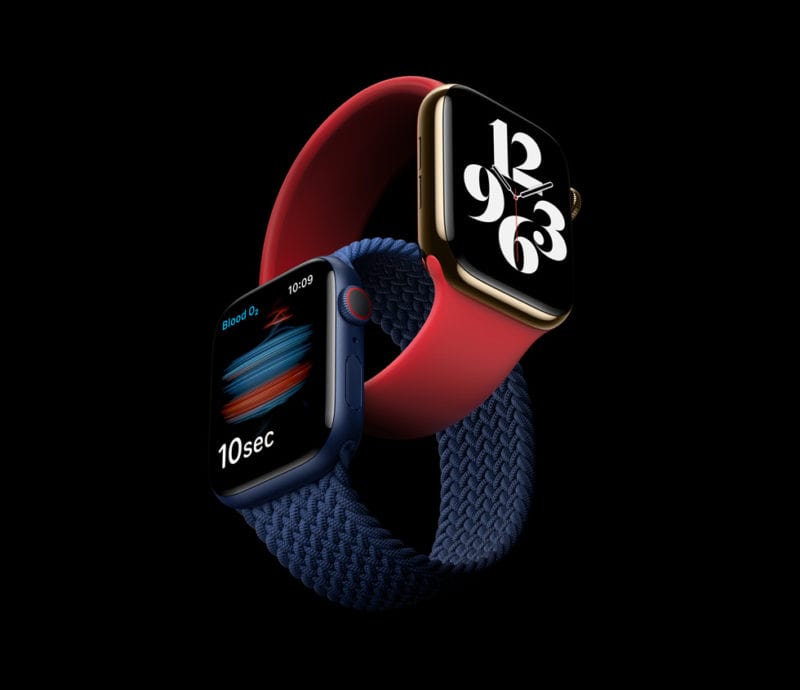Apple has officially unveiled the Apple Watch Series 6, bringing the expected assortment of hardware and software improvements to the tech giant’s line of smartwatches. For fitness enthusiasts, the biggest highlight is the new Blood Oxygen sensor, which comes with a matching app that tracks oxygen levels over time.

The blood oxygen readings are captured with reflected light, and are performed passively or on-demand with four clusters of green, red, and infrared LEDs in addition to the four photodiodes on the back of the Watch. The algorithm should be able to account for different kinds of skin, while the results can be viewed in the Health app.
Apple is planning to leverage the data generated with the Blood Oxygen sensor to develop other health applications in the future. The company is already involved in multiple studies that will examine blood oxygen levels in relation to asthma, heart failure, and respiratory conditions, including COVID-19. Apple has partnered with the University of California, Irvine, and Anthem for the asthma study; the Ted Rogers Centre for Heart Research and the Peter Munk Cardiac Centre for the heart failure study; and with the Brotman Baty Institute and University of Washington faculty for the respiratory study.
Other features include an always-on Altimeter, U1 chip and Ultra Wideband antennas, and an improved S6 System in Package (SiP) that speeds up performance by 20 percent. The Watch also introduces watchOS 7, which comes with a slew of features like sleep tracking, automatic handwashing detection, and a Family Setup application. The latter is geared towards children and other family members who may not have a smartphone, and offers learning tools and provides connectivity in emergency situations.
The Apple Watch Series 6 GPS model will start at $399, while the GPS + Cellular model will go for $499. Both are available in multiple different styles, and with different kinds of bands. The new Watches will debut in the US and elsewhere on September 18, and can currently be ordered direct from Apple.
Apple did not mention anything about Touch ID despite patent applications and reports that hinted at the possibility of fingerprint authentication in a future device. However, the announcement does reflect the company’s recent focus on wellness applications, and on connected technologies like digital car keys.

Follow Us